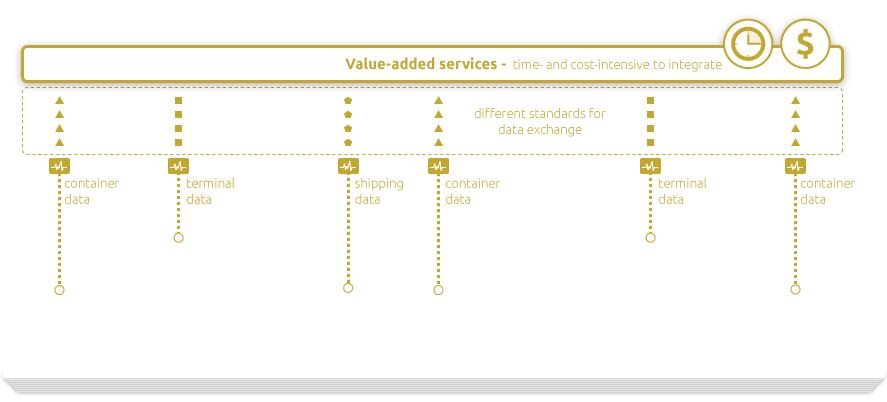COMCIS is a collaborative project between multiple transport and logistics actors that generates situational awareness along global supply chains in support of enhanced logistics services.
Awareness: Imagine that you’re waiting to handle or receive a container of high-value cargo. It’s critical that it be delivered efficiently, on time and intact. But how can you find out what is happening to your container during its long journey? With 90% of world trade being transported by sea it has never been more important to make cargo-related data flow as freely as the physical cargo itself. COMCIS delivers awareness throughout global supply chains to solve problems of data fragmentation, delay, and inconsistency. Using data drawn from the entire supply chain, COMCIS provides accurate, comprehensive logistics information.
You can find out about problems sooner and adjust your plans proactively, minimising the impact of deviations or other exceptions and maximising commercial opportunities. COMCIS supplies business tools that can eliminate uncertainties and raise efficiency, especially when sensitive cargo is involved. COMCIS demonstrates “Collaborative Information Services for Container Management” and ensures that such services can be used in real-world operations. The project is funded by the European Commission, General Directorate for Research, under the 7th Framework Programme for Research & Development (FP7).
Take-away:
How can I use COMCIS results?
Collaboration: Access, standardise, consolidate & deliver information from multiple data sources and parties.

Companies currently have to cope with different standards for data exchange between multiple systems and parties. Without a single, industry-wide communication format, this takes time and costs money.
COMCIS uses the so-called Common Framework, which supports interoperability between ICT systems in logistics and provides a basis for semantic (i.e. content-related) standards in the transport and logistics sector. Key elements of the Common Framework are part of the UBL version 2.1 standard. A link is being established between the Common Framework and the GS1 Logistics Interoperability Model.
COMCIS deploys a 3-layer architecture that supports B2B (Business-to-Business) and B2A (Business-to-Administration) communications:
Firstly COMCIS aggregates data from multiple sources, each with their own format and frequency, making it easier to access data that is spread throughout the supply chain.
Secondly COMCIS standardises the data so that it can be processed by value-added services, independent of its original source and format.
Thirdly COMCIS consolidates the data to create on-time, qualified and derived information that can support operational decisions: delivering the right information to the right person, at the right time, in a user-friendly way.
A core strength of the COMCIS concept is that it can be implemented across a wide range of situations, from an operationally driven, hinterland-focused case like ECT to a strategically driven, global case like DHL – and everything in between.
The technology, services and data that COMCIS provides can be customised quickly and easily to meet individual companies’ needs. It is being subjected to extensive practical testing to ensure that the system is robust and ready to be implemented in businesses of any size, from global shipping giants to local logistics agents.
Opportunity: Create new models for business and operations. Currently the data for end-to-end supply chains are scattered across the globe. Looking at the entire chain is usually too complex and costly for individual businesses, which means they miss out on commercial opportunities. COMCIS creates holistic views of supply chains, beyond the boundaries of a single actor’s operational responsibilities, and offers information services that can benefit logistics service providers, terminal operators, ocean carriers, port authorities and customs administrations in their respective activities. Professional actors benefit from greater operational control;
with more relevant and comprehensive information and fewer barriers to communication they can react sooner to deviations in the supply chain, and identify opportunities for further improvement. By raising the quality of services, actors can also create added value for their customers. COMCIS is ready to help stakeholders understand the value of multiple information channels, offer advice on how to use them, and demonstrate the resulting benefits. While results are demonstrated on this site using examples from industry leaders, COMCIS solutions have been designed to be equally useful to SME’s.
